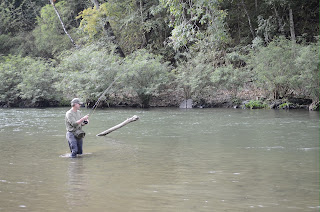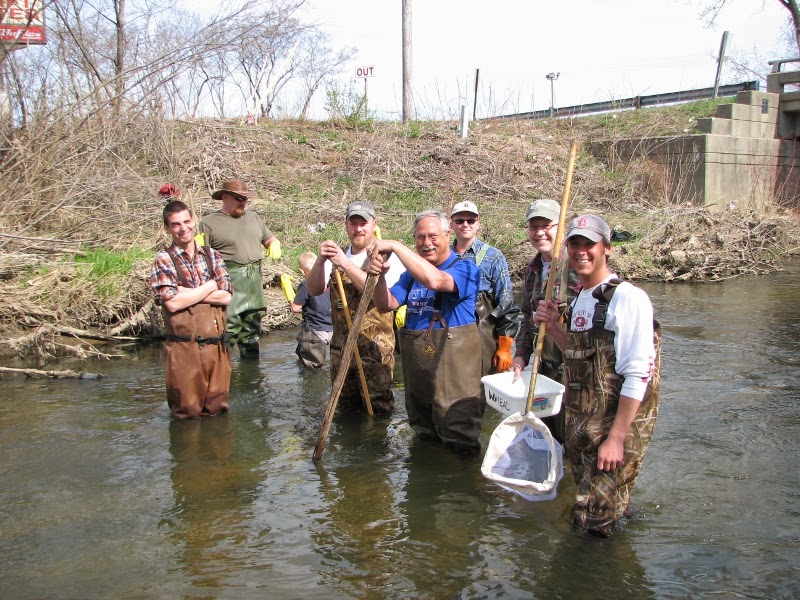The Father, Son and Holy Spirit created life. And then, they began to spread life
everywhere. God the Father created the
heavens and the earth. He did so through
God the Son, as the book of Colossians says: “For by him (Jesus Christ) all
things were created: things in heaven and on earth.” But the Holy Spirit is also active in the
creation of the world, as Genesis tells us when it says, “and the Spirit of God
was hovering over the waters.” The
Triune God loves life, and let me tell you, I do too! And I just love the way that this Triune God
bring us life.
The focus of waters right from the beginning gives us an indication of the way that God was going to use water as that which brings us life. Genesis 2:10-14 says, “A river watering the garden flowed from Eden; from there it was separated into four headwaters. The name of the first is the Pishon; it winds through the entire land of Havilah, where there is gold. (The gold of that land is good; aromatic resin and onyx are also there.) The name of the second river is the Gihon; it winds through the entire land of Cush. The name of the third river is the Tigris; it runs along the east side of Ashur. And the fourth river is the Euphrates.”
The river flowing from Eden gives life to all that God has
created. The river separates into four
headwaters which signify the four corners of the world as the ancients
understood it. God simply used four
rivers to bring life to the entire creation.
From the beginning, water was life.
And water is best delivered by way of a river.
Later, in a seemingly hopeless time for God’s people, the
prophet Ezekiel was given a vision of a river flowing from the altar in the
Temple. Though it started very small it was
soon a great river with many trees growing on the banks. The river flowed into the Salt Sea and there
everything turned sweet with swarms of living creatures everywhere. People were fishing on the banks of what once
was a barren body of water. This is a
great picture of a river giving life to flora, fauna and folks everywhere. Don’t we just long for the vision of Ezekiel
to become a reality in our lives?
Ezekiel’s vision is repeated in the last book of the
Bible. In the last chapter of Revelation,
when heaven has come down to earth and eternity is about to begin, we see a
river of the water of life flowing from the throne of God. As it flows there are trees that line the
river producing fruit every month of the year.
The leaves of those trees are for healing the brokenness of the
world. So once again, as in the
beginning, the river is the way that God brings life to the New Heavens and the
New Earth.
Right in the middle of these beautiful images of rivers giving life to all God has created, Jesus takes this image several notches higher. In John 7:37-39 it says, “On the last and greatest day of the festival, Jesus stood and said in a loud voice, ‘Let anyone who is thirsty come to me and drink. Whoever believes in me, as Scripture has said, rivers of living water will flow from within them.’ By this he meant the Spirit, whom those who believed in him were later to receive. Up to that time the Spirit had not been given, since Jesus had not yet been glorified.” Jesus is the ultimate life giver, but with this unbelievable promise he tells us that all who drink of him will become rivers of life-giving water. Imagine that; out of me and you there will be a river of life wherever we go!
I so want that to be true of me. I long to be a river of life flowing all over
the place, giving life to whomever wades into my waters. This is also why I find caring for rivers and
streams so very important, especially in the context of a church ministry. Rivers bring life to all the creation. The church is called to bring life to all
creation. And when we can combine the
two in a visible way that helps the world see how much we value bringing life
to creation, that is truly a beautiful thing, and something that gets the
attention and appreciation of our community.
Rivers are essential for our environment so we need to care
for them. It does not matter if they are
the mighty Mississippi or little Rush Creek.
But whether we are restoring badly degraded waterways or simply appreciating
the life they give, each one of us is called to be a river of life spreading
God’s life in some way wherever we go.
Are we doing it?














